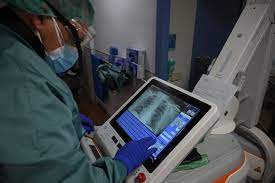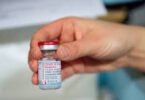DUBAI (Reuters): Novocure said on Tuesday its experimental device to treat a type of lung cancer showed a statistically significant improvement in extending overall survival among patients in a late-stage study.
The device, used with certain chemotherapies and immunotherapies, helps in creating electric fields that disrupt cancer cell growth.
Data from the study showed the device, along with a class of immunotherapies know as immune checkpoint inhibitors (ICI), extended survival by 8 months compared to patients treated with ICI alone. However, analysts raised concerns that only a small group of patients in the study were previously treated with ICI such as Merck’s Keytruda, while it is now a standard of care and most patients take it.
This raises the question whether the data would apply in a real-world setting where most patients initiate treatment with checkpoint inhibitors, analysts said.
Novocure’s shares fell 17.1 percent to $67.70 in early trading.
“Only 2 percent of patients in the ICI arm had prior ICI exposure,” said Emily Bodnar, H.C. Wainwright & Co. analyst.
Novocure’s device along with standard therapies, including chemotherapies and immunotherapies, also extended survival to 13.2 months compared to 9.9 months in patients treated with standard therapies alone.
The therapy is the first in more than seven years to show a significant extension in overall survival in metastatic non-small cell lung cancer treatment (NSCLC) after a type of chemotherapy in late-stage study, the company said.
Lung cancer is the most common cause of cancer-related death worldwide, and NSCLC accounts for about 85 percent of all lung cancers, the company said.
Novocure plans to submit marketing application to the US Food and Drug Administration in the second half of 2023 based on the data.







